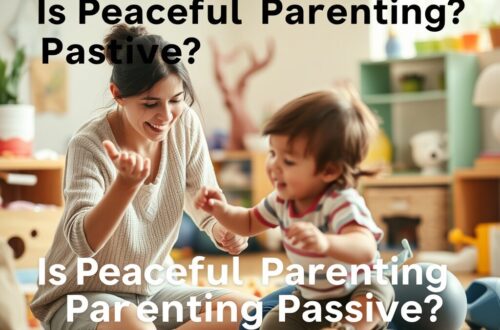
What parenting style is best for your child?
What parenting style is best for your child is something that many people will differ on.
A few decades ago, many believed that the only proper way to parent a child was to instil unquestioning obedience via punishments and spanking if needed. Since those days, the norm has changed. Now, society sees spanking as abusive and unkind. In some cases, however, the pendulum has swung to the other extreme. It is not uncommon in our current times to find households where parents give the children free rein. Some little ones are allowed to do what they want when they want it.
Despite the controversy, what parenting style is best for your child is not just a matter of personal opinion. There is research that has now been done into the four main parenting styles and how they impact children. But before we look at what parenting style is best, lets look at the 4 main styles of parenting.
The 4 main parenting styles
Pysologists break parenting down into 4 main styles. Of course, this are just the archetypes. Most parents will not fit neatly into one style, rather will work with a blend of the different parenting techniques.
The 4 main parenting styles are as follows.
Permissive Parenting
A Permissive parent will connect with their child and offer time and attention.
They will not set rules or expectations of behaviour. Instead, they will often try to ensure that the child is allowed to have or do what they want. They will attempt to shelter their child from disappointment or unmet want.
Children raised in permissive homes are often involved in major decisions, and will be offered freedom without responsibility.
Uninvolved Parenting
Like the permissive parent, the uninvolved parent won’t have expectations or behaviour or rules that they want their child to follow.
They also will not offer connection or attention.
Engagement with their child will often be limited. Uninvolved parenting is sometimes also called neglectful parenting.
The children in these homes are expected to fend for themselves.
Authoritarian Parenting
Authoritarian parents will have firm rules and high expectations of behaviour.
They expect their child to obey without questioning. Authoritarian parents do not take heed of the child’s opinions or feelings. In authoritarian parenting, the parent’s voice is law, and the child’s voice is insignificant. This means that authoritarian parents tend not to connect with their child.
Authoritarian parents discipline using punishments. If the child errs, they will have to suffer a negative consequence. The fear of negative consequences is used as motivation for the child to make better choices.
Authoritive parenting
Authoritative parents offer their children high levels of connection and attention. They also have high expectations of behaviour and will maintain clear rules.
They will listen to their children’s opinions and consider their children’s needs and feelings when making decisions. This does not mean that they shy away from allowing a child to learn through consequences. Rather than sheltering their child from life, they will support their child by offering them the tools to cope.
Authoritative parenting often has a more positive approach to discipline. Children are given the tools and taught the skills needed to thrive.
Why do we all parent so differently?
Many factors can influence the way a person parents. These can be emotional, psychological and social.
Sometimes it is just an outcome of circumstances. This is often the case with uninvolved parents. This parenting style is often a side effect of a parent with other life struggles, therefore unable to give their best to the child.
Often, there are parenting styles that are seen as more acceptable in the location or social circle that surrounds you. In my parents’ day, authoritarian parenting was admired, and parents who smacked their children were seen as responsible. Nowadays, in the UK, smacking is seen as wrong, and the authoritarian style is a lot less acceptable.
Other factors can influence which parenting style you choose. It may be due to your own childhood, either a rebellion against or a copy off. Or perhaps your child has additional needs which you need to account for in your parenting methods.
How the different parenting styles impact your child
Two children can grow up in the same home and turn out completely different. Children are not innate sponges that we parent into, but rather living people who respond to the environment in which they are born.
Nevertheless, your parenting styles will have an impact on your child.
Authoritarian parenting
Authoritarian was the parenting style that was often touted as best during the 80s and 90s. On face, the children of authoritarian parents are well behaved. However, long-term, authoritarian parenting does not lead to positive or healthy behaviour.
The social impact of being raised by authoritarian parents was studied in China in 2023. Children who were raised in strict, authoritarian homes were more aggressive and less likely to connect with their peers. This may be due to genetics, learned behaviour, or just that the children were less trusting of their peers, believing that people were inherently aggressive.
It is worth noting that some disagree and believe that children from authoritarian families are less likely to cause disruptions and therefore get along with peers and other children.
Children from this parenting style do not have the best levels of emotional intelligence, which can lead to impulsive behaviour. They are also at higher risk of developing depression and anxiety. They are also likely to have low self esteem.
As their parents are controlling their behaviour and making decisions for them, they may struggle with self-control.
On the flip side, there are benefits to authoritarian parenting. It can offer children clarity on whose authority they should submit to. This can help them become resilient to peer pressure.
Uninvolved Parenting
Children of uninvolved parents are often very independent. This is usually due to the fact that they have had to take care of themselves, and not been able to rely on a parent or carer. Instead, they have had to fend for themselves.
They may also be more emotionally unstable or immature. This is because connection with the main adults in their life is important for a child’s emotional development.
That connection with the main caregiver, also will be a foundation upon which future relationships are formed. Without the connection, the child may struggle to maintain healthy and trusting relationships in the future.
Uninvolved parenting can also lead to low self-esteem in the child. The lack of structure can be detrimental to their physical and mental health. Without a close connection, they are not able to learn by watching a parent’s modelled behaviour, therefore can be more impulsive and find it hard to make sound decisions.
The consequences of uninvolved parenting carry through to school, with children struggling academically.
As we discussed earlier, often uninvolved parenting is not a choice. It is often the consequence of parents who are unable to show up due to their own limitations.
Permissive parenting
It is not surprising that children from permissive homes are often very secure in their relationship with their parents and have very high self-esteem.
Unfortunately, this parenting style also has many drawbacks.
As there are no boundaries at home, the children can struggle with self-control. The lack of rules and structure can also cause children to feel anxious and insecure. When they enter an environment where they are expected to follow rules, they can struggle.
If a child is not given limits on things like screen time or sugar, they will often overindulge. This not only leads to poor mental and physical health in the present, but they will also struggle to set limits on themself in later life.
As permissive parents often prioritise the child’s immediate happiness, children raised this way can become egocentric and lack patience or the ability to compromise. This can hurt their social development.
In permissive parenting children are offered as much freedom as the parent can manage, without the responsibilities. The lack of responsibility and accountability can mean these children can, find it harder to achieve academically or outside of school.
Authoritative parenting
Authoritative parenting is a middle ground between permissive and authoritarian parenting. It offers the structure and high expectations of authoritarian parenting, along with the strong parent-child bond of permissive parenting.
Children from authoritative parents are securely attached, and their voice is listened to. This can have a positive impact on their self-esteem and confidence. The strong bond can also reduce risk for anxiety and depression later in life.
Despite the strong bond, children from authoritative parents are encouraged to exercise their independence and try new things. The freedom that the children are given is matched with an understanding of the responsibilities. This can set a child up for success and achievement.
The strong bond with their parent or carer, matched with an understanding of appropriate behaviour can help a child socially.
These children are disciplined through positive reinforcement and encouragement, being given the space to find out who they are. Their good behaviour is driven by a strong sense of personal identity instead of by fear.
There is also evidence that children raised by authoritative parents are more emotionally regulated and have better problem-solving abilities.
What parenting style is best?
Experts agree that the authoritative parenting style leads to the best outcomes for children. However, it requires a lot of time and patience. At times, most of us will use different parenting styles, as it is rare to parent exclusively one way.
At the heart of it, children who is secure in their attachment with their parent and are raised in a safe environment with parents who love them enough to discipline them they will thrive.
Children also learn a lot from examples. If they are surrounded by people with healthy attitudes and habits, then they are likely to adopt the same behaviours.
Final note
Although all of the parenting styles have benefits, the balance between a loving and warm connection and high expectations that is offered by authoritative parents can give children a foundation of security and motivation from which to excel.










